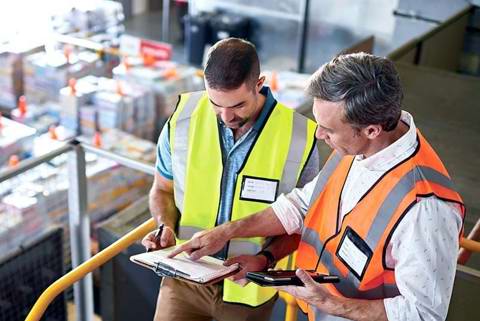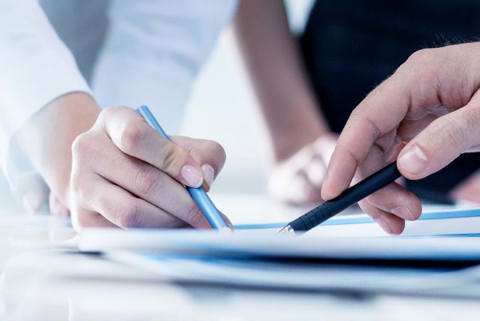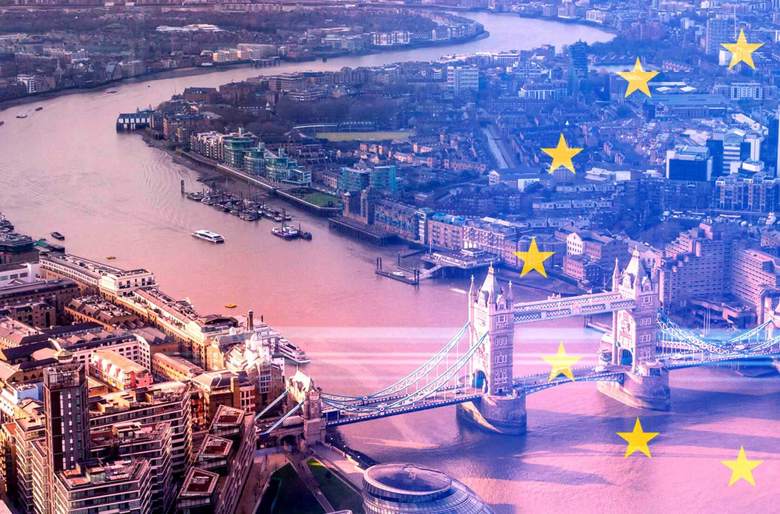
Free Trade Agreement:
Goods
Details-EU or UK origin goods when entering the UK will need extra document codes in the entry depending on the type of declaration. Codes U110/111/112/113/114
Simple-Goods with a declaration can claim Duty Free status if the goods have the required documents to add the codes.
Details-EU DDP Sellers into the UK Market will now have to register for UK Import VAT and acquire an EORI number to sell to the UK market.
Simple-EU DDP Exporters need to register for Import VAT and GB EORI
Details-Good moving from the UK to NI will require a safety & security ENS message sending to the arrival port in Norther Ireland. After this customs declaration will be required to account for any goods at risk of moving onwards to the Republic of Ireland. A GMR goods movement reference will also be required by the ferry company prior to sailing to access the port.
Simple-UK Exporters need to register for the TSS system to complete the export entries prior to shipping to Norther Ireland & acquire a GMR to allow ferry crossing.
Details-EU or UK origin goods when entering the UK will need extra document codes in the entry depending on the type of declaration. Codes U110/111/112/113/114
Simple-Goods with a declaration can claim Duty Free status if the goods have the required documents to add the codes.
Details-EU DDP Sellers into the UK Market will now have to register for UK Import VAT and acquire an EORI number to sell to the UK market.
Simple-EU DDP Exporters need to register for Import VAT and GB EORI
Details-Good moving from the UK to NI will require a safety & security ENS message sending to the arrival port in Norther Ireland. After this customs declaration will be required to account for any goods at risk of moving onwards to the Republic of Ireland. A GMR goods movement reference will also be required by the ferry company prior to sailing to access the port.
Simple-UK Exporters need to register for the TSS system to complete the export entries prior to shipping to Norther Ireland & acquire a GMR to allow ferry crossing.

CHANGES TO VAT TREATMENT OF OVERSEAS GOODS SOLD TO CUSTOMERS FROM 1 JANUARY 2021
BACKGROUND
At the end of the transition period, the government will introduce a new model for the VAT treatment of goods arriving into Great Britain from outside of the UK. This will ensure that goods from EU and non-EU countries are treated in the same way and that UK businesses are not disadvantaged by competition from VAT free imports. It will also improve the effectiveness of VAT collection on imported goods and address the problem of overseas sellers failing to pay the right amount of VAT on sales of goods that are already in the UK at the point of sale.
This paper follows publication on 13 July 2020 of The Border Operating Model and expands on the sections covering the VAT treatment of consignments not exceeding £135 from 1 January 2021.
This paper does not cover matters specified in the Northern Ireland protocol. The government continues to work through the implications of the Northern Ireland Protocol, including in relation to VAT and excise. The government is committed to providing guidance on how the Northern Ireland Protocol will work ahead of the end of the transition period.
OUTLINE OF THE CHANGES
For imports of goods from outside the UK in consignments not exceeding £135 in value (which aligns with the threshold for customs duty liability), we will be moving the point at which VAT is collected from the point of importation to the point of sale. This will mean that UK supply VAT, rather than import VAT, will be due on these consignments.
The new arrangements will also involve the abolition of Low Value Consignment Relief, which relieves import VAT on consignments of goods valued at £15 or less.
Online marketplaces (OMPs), where they are involved in facilitating the sale, will be responsible for collecting and accounting for the VAT.
For goods sent from overseas and sold directly to UK consumers without OMP involvement, the overseas seller will be required to register and account for the VAT to HMRC.
Business to business sales not exceeding £135 in value will also be subject to the new rules. However, where the business customer is VAT registered in the UK and provides its valid VAT registration number to the seller, the VAT will be accounted for by the customer by means of a reverse charge.
The changes will not apply to consignments of goods containing excise goods or to non- commercial transactions between private individuals. Existing rules will continue to apply for these transactions.
In addition, for sales of goods by overseas sellers, where the goods are already in the UK at the point of sale, we will move the responsibility for accounting for VAT from the overseas seller to the OMP that facilitates the sale.
Overseas sellers will remain responsible for accounting for the VAT on goods already in the UK and sold directly to UK consumers without OMP involvement.
Although these arrangements will mean that for many consignments not exceeding £135 in value there will no longer be any VAT to collect at the border, customs declarations will still be required for non-fiscal purposes. However, in recognition of the changed role of the customs declaration for affected consignments, a number of facilitations, including the use of reduced data sets and bulk declarations will be available
For imports of goods by UK VAT registered businesses which are not covered by the provisions in this guidance note, there will also be changes from 1 January 2021. Businesses will be able to use postponed VAT accounting to account for import VAT on their VAT return for goods imported from anywhere in the world. This means the business will be able to declare and recover import VAT on the same VAT return, rather than having to pay it upfront and recover it later, subject to normal VAT recovery rules.
There are 2 strands to the measure, which will change the way VAT is collected on sales of goods in the following circumstances:
- Goods sold to UK customers where the goods are located outside the UK at the point of sale and the supply involves the later importation of the goods into the UK.
- Goods sold to UK customers where the goods are in the UK at the point of sale, sold by an overseas seller and where an OMP facilitates the sale.
IF YOU REQUIRE ANY HELP OR ADVICE OUR NOMINATED VAT PARTNER FISCAL SOLUTIONS ARE HERE TO LEND A HAND.
INTRO
Fiscal Solutions provide specialist VAT support to businesses trading globally. We can help you ensure that you are up-to-date with the latest and relevant VAT rules and requirements.
ABOUT FISCAL SOLUTIONS
Fiscal Solutions offer a comprehensive VAT service to all those looking to do business anywhere in the world. Our specialist team collaborates to provide the highest calibre advice for your business. Being based under one roof means our team of multi-lingual experts can act as a single point of contact for all our clients, working collaboratively to solve any VAT issues that may arise.
We help you simplify today’s complexities, address tomorrow’s challenges, and take fear out of the equation.
No matter what the task or the country, Fiscal Solutions can help you solve your business VAT needs.
Get in touch today by emailing: VAT2021@sekologistics.com
Frequently Asked Questions
SEKO prides itself on our close relationships with clients and in helping our clients manage challenges and realize growth opportunities, irrespective of the local regulatory trading environment. While Brexit presents challenges, it is also expected to create new opportunities for companies trading globally. In each case, SEKO has the expertise, services and software solutions to make changes as easy as possible for our clients to manage.
We are continuing to prepare for all post-Brexit scenarios with the intention of eliminating or minimizing any disruption to our clients’ supply chains. This includes working with clients on a one-to-one basis to support their own Brexit preparations. We are also bringing additional Customs expertise into our business to provide information and advice for customers.
You can reach out to our customs team via brexitdesk@sekologistics.com
In the event of a ‘no deal’ Brexit, the UK and EU borders will become clearance points. Goods traveling by air or sea will follow the normal process, but will require customs entries at both the EU exit and UK arrival points. As these processes are already geared up for international clearances, the delays should be minimal. The ability to remove air and sea freight to External Temporary Storage Facility (ETSF) border sheds before clearance also helps in this scenario.
Road freight is expected to be the most affected aspect of supply chains if there is no agreement which maintains the current free movement of goods. All road freight shipments in the EU currently require minimal paperwork and ‘light touch’ checks only. However, once the UK leaves the EU, consol trailers will need clearance instructions for all goods carried on board before they are able to move across borders to continue their journey. This is where delays are most likely to occur, even if the UK allows inland clearance depots to remove freight from the arrival ports.
With regards to EU origin goods, these will be treated the same for all EU countries. However, non-EU origin goods coming to the UK via the EU may be more complex, depending on the preference and trading agreements. Availability of the correct preference paperwork and proof of origin will help to minimize any potential delays.
Ensure you have the correct paperwork at brexitdesk@sekologistics.com
Assuming there is no change in the 29 March 2019 date on which the UK leaves the EU, the transition period will last until 31st December 2020. This period is designed to give the UK and the remaining 27 EU Member States time to adjust to new trading partnerships. Until the transition period ends, the UK will remain a fully abiding member of the EU and, as such, abide by its laws and regulations. Within this timeframe, the full new trading partnership or deal will be agreed.
SEKO’s clients are already at an advanced stage in their Brexit preparations to protect their supply chains and withstand, what is regarded by many as the worst case, a ‘no deal’ scenario.
The preparations we have recommended include:
- Determining the level of risk to their business plan/model in relation to EU trade & Brexit, checking how every part of their business plan may be affected – including indirectly by third party suppliers and services – and stress testing their business to identify potential weak points;
- Preparing for potential currency fluctuations and looking to lock down prices or buying ahead to establish a buffer for trade, especially for imports;
- Identifying the impact of potential new import/export tariffs. Import and export sources from or via EU countries could potentially incur higher levels of Duty & VAT thus increasing the price of parts or goods. Again, customers are advised to look at third party impact to avoid any hidden cost. You can look up the potential costs on the HMRC online Tariff page to try to quantify potential increases;
- Consider sourcing products or parts from alternative suppliers outside of the EU. This, again, will ensure you have a contingency plan in place which can be quickly activated if needed.
Contact brexitdesk@sekologistics.com for help with your contingency plan.
As a global logistics service provider with over 120 locations in more than 40 countries, SEKO Logistics has over 40 years of experience of helping customers manage changes to trading environments resulting from a variety of political, regulatory and economic scenarios. Currently, no one fully understands the potential impact of Brexit on supply chains because trade and customs negotiations are ongoing, but our in-house customs specialists and advisors are working alongside our logistics planning specialists to ensure we are best-placed to manage any disruption, and to ensure our customers’ shipments continue to move as planned. As always, we will continue to provide customers with the best advice, solutions and supply chain visibility to manage their business efficiently and to limit any impact as a result of Brexit.
Get in touch with our customs specialists and advisors at brexitdesk@sekologistics.com
In a “No Deal” scenario, the UK will need to trade with the EU using World Trade Organisation (WTO) rules. This would mean that UK businesses will have to apply Customs, Excise and VAT procedures to trade with the EU.
The UK will need to agree a new Trade Agreement with the EU - this will take time to negotiate and ratify. Whilst that negotiation happens, there will be requirements for all companies who trade with the EU to ensure that legislation is applied to guarantee goods will transit across the UK-EU borders. There will be some changes to the way your business operates that are required. Businesses will have to apply the same rules when trading across EU borders as we currently do for international shipments.
Import Declarations on arrival to the UK:
- Duty, VAT, Excise Tax Payable
- Tariff Code of Goods required
- EORI & VAT number required
Export Declarations on Dispatch to the EU:
- EORI Required
- Tariff Code of Goods required
- Manufactured Origin of Goods Required
- Any certification required for your goods by the EU
- Possible ability of Haulier/Carrier to carry out transit
All items imported or exported from the EU are given a Customs Tariff or Commodity code that identifies the specific item. Each Tariff code is given rates of tax for Duty, VAT & Excise when imported into the EU, including the UK.
In the event of a “No Deal” WTO scenario, the UK government will issue a new Tariff for Importing into the UK when we leave the EU.
For Imports into the UK currently, 87% of the tariff codes have been given a 0% duty rating to help reduce the impact on the UK Businesses & Consumers. This will help mitigate costs which will increase due to the “No Deal”.
For Exports to the EU, products will incur the full EU trading tariff and thus will incur taxes that are currently not charged.
You could Incur Duty, VAT & Excise Taxes on arrival in the EU, depending on the Manufactured Origin of the goods.
Please contact brexitdesk@sekologistics.com for help in assessing the taxes
To ensure that your company is adequately prepared to import from the EU after Brexit, you will need to review and investigate the following requirements:
- Trade Terms - These will be the fundamental control item which will decide which parts of the Transaction & Transit you are responsible for. If you are buying on Delivery Duty Paid (DDP), you must ensure your seller can complete the transit & customs formalities to you in the UK.
- Tariff Codes - Ensure you or your supplier can provide the correct Customs Tariff commodity codes. This will mean that you pay the correct taxes on import.
- Customs Clearance - Contact your Customs Clearance agent to confirm that they can clear your goods for you and provide guidance. Extra costs will be incurred to complete these clearances. You will also need to apply for transitional simplified procedures (TSP) - a new process which will allow easier UK clearance away from the Ports.
- Supplier & Transit - Discuss with your supplier to make sure you can export your goods out of the EU (get to the exit port). If the supplier cannot, then you will have to take action.
- EORI Number - You will need an EORI number to facilitate clearance when your goods arrive in the UK.
- VAT No. - You will need a VAT number to ensure you can claim back any VAT that you incur while importing from the EU. Deferred VAT accounting will be introduced to ease the burden of upfront costs
- Taxes - Customs & Excise Duty could become payable and you will need to be able to pay these taxes. If you cannot transact these, your shipments could incur delays.
To ensure that your company is adequately prepared to export to the EU after Brexit, you will need to review and investigate the following requirements:
- Trade Terms - These will be the fundamental control item which will decide which parts of the Transaction & Transit you are responsible for. Delivery Duty Paid (DDP) will mean you have to clear the goods & pay any EU taxes. If not on DDP terms, then you must ensure the buyer can clear them.
- Tariff Codes - Ensure you can provide the correct Customs Tariff commodity codes. This will mean that you can export correctly & pay the correct taxes on export into the EU.
- Customs Clearance - Contact your UK Customs Clearance agent to ensure that they can export your goods for you & provide guidance. If your terms are DDP, you will have to be able to clear the goods in the EU. If you are unable to do this, your goods will incur long delays.
- Supplier & Transit - Discuss with your customer to make sure you can export your goods to the destination in the EU (get to the delivery point). If you cannot, then you will have to take action. (See Terms)
- EORI Number - You will need an EU EORI number to facilitate clearance when your goods arrive in the EU on DDP terms.
- Vat No. - You will need an EU VAT number to facilitate clearance and pay any VAT that you incur on arrival in the EU.
- Deferment - Customs & Excise Duty could become payable in the EU and you will need to be able to pay these taxes. If you cannot transact these, your shipments could incur delays.
Unless a Deal is secured the UK will leave under a No Deal WTO rules. Duty & VAT will
Become payable on goods moving between the EU & UK depending on their HS Codes.
A DEAL if agreed will only affect any Duty Taxes that would have been paid on specific
qualifying products. The new Customs process will still come into force unless any Customs
simplifications/delays are also agreed.
If you sell on DDP Incoterms, then you will require an EU EORI & VAT number in the country
where the Customs clearance will take place. Completing your VAT returns may require Fiscal
representation if you do not have a presence in the country.
Your Haulier will only be able to load your goods for export when; For Pre-Lodged shipments the UK export & EU Import are completed For Community Transit shipments when the UK export and NCTS Transit are completed.
Even though you may not trade directly with the EU you will have to be aware of any
Incidental affects. Checking that your supply chain for example, suppliers ,transport &
working operations are not impacted . I.E if you buy from a UK supplier , Where do they get
their products from ? It may be from the EU and alter the supply availability & price.
Even though the Buyer has the responsibility to pay the Taxes and clear the goods on all
terms except DDP into the EU you must still check the Buyer, can complete this process.
If not, the goods will be seized by the EU Customs officials until it is cleared.
Due to the complexity of the new customs process there will be a lengthening of the export process. You will need to build in more preparation time to export post Brexit.
Currently international importers pay Import VAT when clearing goods into the UK. This is then credited via a C69 Import Vat Statement on your VAT return. Post Brexit you will be allowed to account for your Import VAT in you VAT return which will remove the need to pay Import VAT at the Border. This is called Postponed VAT Accounting. This will now include EU goods which will become international goods from 1st January 2021.
In the event of a No-Deal the trade with the EU will fall back to WTO rules. This will mean that your goods will incur Import Duty & VAT when clearing into the EU if applicable. Even if a deal is agreed you will have to check if your goods qualify for the reduction of taxes.
Once we are trading with the EU post brexit all goods will require the manufactured origin on the paperwork. This will be the country of manufacture as per WTO origin rules & not necessarily the country from which they were purchased. If you buy your supplies from a UK 3rd party you will also have to check they can provide this information.
What is the IOSS?
The IOSS is an electronic portal that allows you to declare and remit VAT on sales of low-value goods imported and sold to buyers in the EU. It can only be used if:
- The value of the imported goods is €150 or less
- The goods are located outside the EU at the time of sale and dispatched to private individuals in the EU
GET IN TOUCH
We’re here to help with the questions you're asking about how Brexit will affect importing, exporting and logistics.
For any help or advice, please contact our Brexit helpdesk at brexitdesk@sekologistics.com

ANY QUESTIONS, WE CAN HELP – HERE’S JUST A FEW WE RECEIVE REGULARLY
- What locations do you serve?
We empower you to scale into every core market, with 150+ offices and counting.
- Can you ship what I need to ship?
No matter how specialist or time-critical your request, we can handle it all.
- How much will it cost me?
No two shipments are the same, so inquire today for an exact quote.
Please complete the form below and we’ll be back in touch soon!


